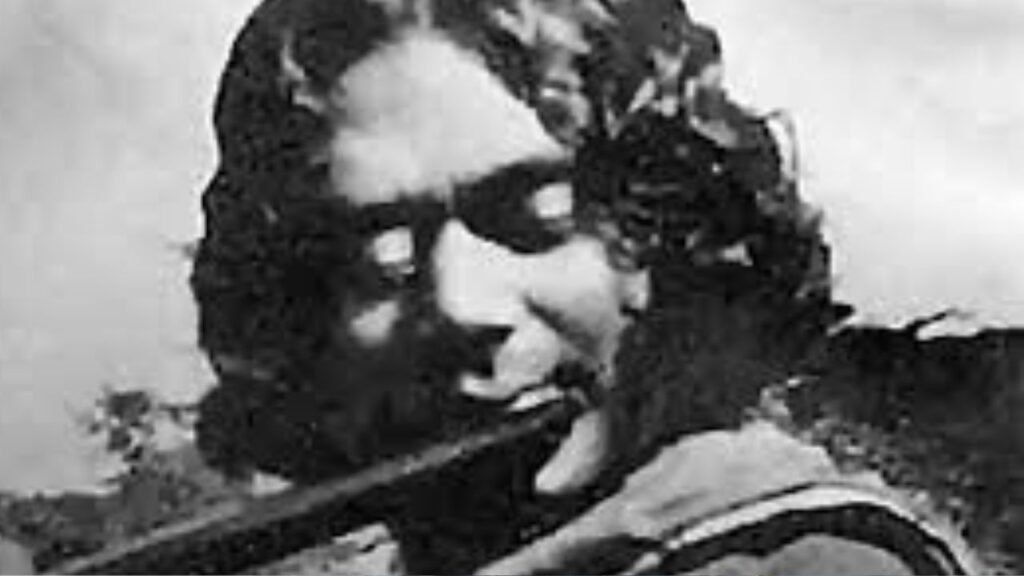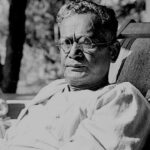Kazi Nazrul Islam Biography: Kazi Nazrul Islam was a Bangladeshi poet, writer, journalist, and musician. Most of Nazrul Islam’s work was about equality, justice, anti-imperialism, humanism, resistance to injustice, and religious devotion. He was knawn as Bidrohi Kobi which means the Rebel poet because of his political activism and his poem “Bidrohī” which means “Rebel” in Bengali. He was respected with Padma Bhushan, Ekushey Padak, and the Independence Day Award. The Birodhi Kobi is also the National Poet of Bangladesh.
Table of Contents
Also Read: Aniruddhacharya Ji Maharaj Biography: Age, Net Worth, Family and Education
Kazi Nazrul Islam Early Life and Education
Kazi Nazrul Islam was born in the village of Churulia, Asansol Sadar, Paschim Bardhaman district of the Bengal Presidency of West Bengal which was Bengal presidency back then on 24 May 1899. He was born into a Bengali Taluqdar family in Churulia. Kazi Faqeer Ahmed was the Imam and caretaker at a local mosque.
Young Nazrul was named Dukhu Miañ which means ‘the one with grief’. He got his primary education in mosque-run Maktab before transferring to a Dargah-run Madrasa he studied theology, Islamic philosophy, the Quran, and Hadith. He lost his father father when he was 10. He worked as the mosque’s new custodian, replacing his father and later the mosque’s muezzin.
He later joined his Uncle Fazle Karim’s traveling theatre company. He started learning acting and writing songs and poetry for his Uncle Theter which exposed him to Sanskrit and Bengali literature as well as Hindu texts. Then he left the theater to pursue his education at Asansol’s ‘Searsole Raj High School and then transferred to Mathrun High English School where he studied under Kumudranjan Mallik.
He dropped out later because he wasn’t able to pay the fees and later started working part-time as a cook at Wahid Confectionery, a well-known bakery in the region, and enrolled into Darirampur School where he studied Nazrul Islam studied Bengali, Sanskrit, Arabic, Persian literature and Hindustani classical music.
Nazrul studied til the 10th but did not show up for the Pre-metric Exam. At the age of 18, he joined the British Indian Army. He joined the 49th Bengal Regiment and was posted to the Karachi Cantonment although he never saw real action he got a promotion from corporal to havaldar and then to the quartermaster for his battalion. Around his time in the Army, he wrote his first prose and Poem.
Kazi Nazrul Islam Family
Kazi Nazrul Islam had Nazrul Islam had two brothers, Kazi Saahibjaan and Kazi Ali Hussain, and a sister, Umme Kulsum among which he was the 2nd son. Later in his life, he got married On 18 June 1921 and had 4 children.
Kazi Nazrul Islam Legacy
Kazi Nazrul Islam’s poetry has been translated into several languages including English, Spanish, and Portuguese. He was invited to live in Dhaka after Bangladesh was separated from Pakistan with the consent of the Indian Government.
In February 1976 he was awarded Bangladeshi citizenship. Nazrul Rahman was awarded Padma Bhushan, by the Indian government. The University of Dhaka in 1974 and in 1976 he was awarded the Ekushey Padak. Kazi Nazrul Islam is the national poet of Bangladesh.
Also Read: Birbal Sahni Biography: Birthday, Wiki, Career, Education, Wife, Parents, Death, FAQs



